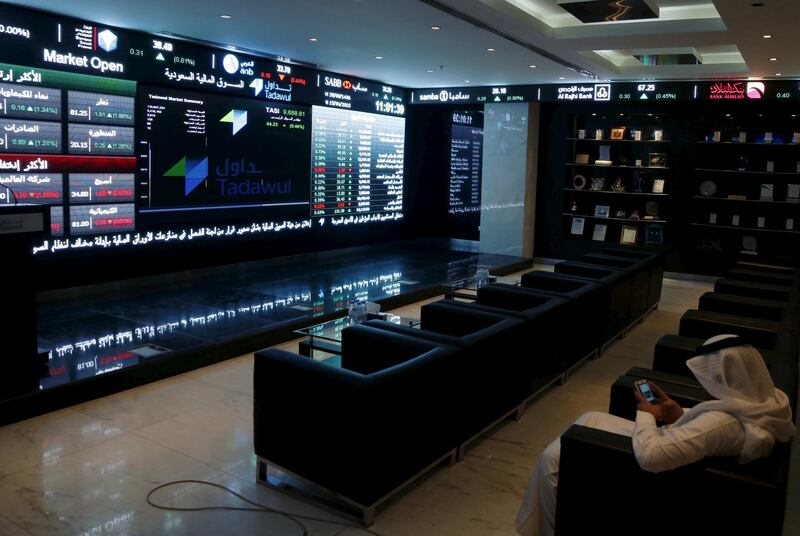Foreign investors bought $1.18 billion in Middle East and North African equities in March, especially Saudi ones amid the kingdom’s upgrade to emerging market status by FTSE Russell, according to a report by the Egyptian investment bank EFG-Hermes.
Nine of the most purchased stocks by international investors in March were Saudi Arabian ones, led by Al Rajhi Bank, the country’s biggest publicly traded lender by market value. The possible inclusion of Saudi Arabia in the MSCI Emerging Market index may also boost investment in the nation’s listed companies.
“Following FTSE’s country classification announcement on 28 March, the focus now turns to MSCI’s May review,” said Mohamad Al Hajj, a strategist at EFG-Hermes.
__________________
Read More:
[ Kuwait stock exchange starts second phase of revamp ]
[ Exclusive: EFG Hermes to enter second sub-Saharan African country in 2018 ]
__________________
Mr Al Hajj said that EFG-Hermes was expecting an upgrade for Saudi Arabia, which along with the FTSE inclusion, is set to attract billions of dollars into the kingdom’s stock market.
Saudi Arabia's Tadawul, the region's biggest equity market, has surged 8.9 per cent so far this year amid investor anticipation of inclusion in the benchmarks, a rebound in oil prices and higher government spending.
Analysts expect investors who track indexes, typically known as passive investors because they do not pick stocks, will buy between $10bn and $12bn of Saudi equities as a result of the upgrades. Meanwhile investors that pick stocks, called active investors, will invest a further $30bn to $35bn.
Saudi Arabia is seeking to revive its economy after several years of low oil prices that curtailed job creation and growth.
The measures include a reduction of energy subsidies, plans to raise taxes such as a VAT and selling off state assets including a 5 per cent stake in Saudi Aramco, the world's biggest oil producer whose sale may fetch as much as $100bn.
The country’s financial regulators are also streamlining regulations and bringing capital markets in line with global norms. As well as introducing T+2 settlement, which means that securities settle two days after they are bought, the country’s Capital Market Authority also introduced Nomu, a parallel market for smaller cap companies. It also enabled securities borrowing and lending, and the adoption of International Financial Reporting Standards for listed companies.
EFG-Hermes also noted that Emaar Development, the Dubai-based real estate development company, and El Sewedy Electric, the Cairo-based cable manufacturer, may also be added into the MSCI index in the May review while Dubai-based leisure company DXB Entertainment may be removed.
International investors continued to be net buyers of Middle East and North African stocks in March while GCC buyers also became net buyers, compared to February, the survey found. The only non-Saudi Arabian stock in the top 10 most heavily purchased equities by foreigners in March was First Abu Dhabi Bank, UAE's biggest lender which received $55 million in investment.
Meanwhile, foreigners invested $326m in Al Rajhi Bank in March and $143m in Saudi Arabian lender National Commercial Bank.
The Saudi Arabian upgrade by FTSE follows a similar promotion for Kuwait to emerging market status in September. That move, which will take effect in two stages this year, is also set to attract an inflow of foreign investment.






